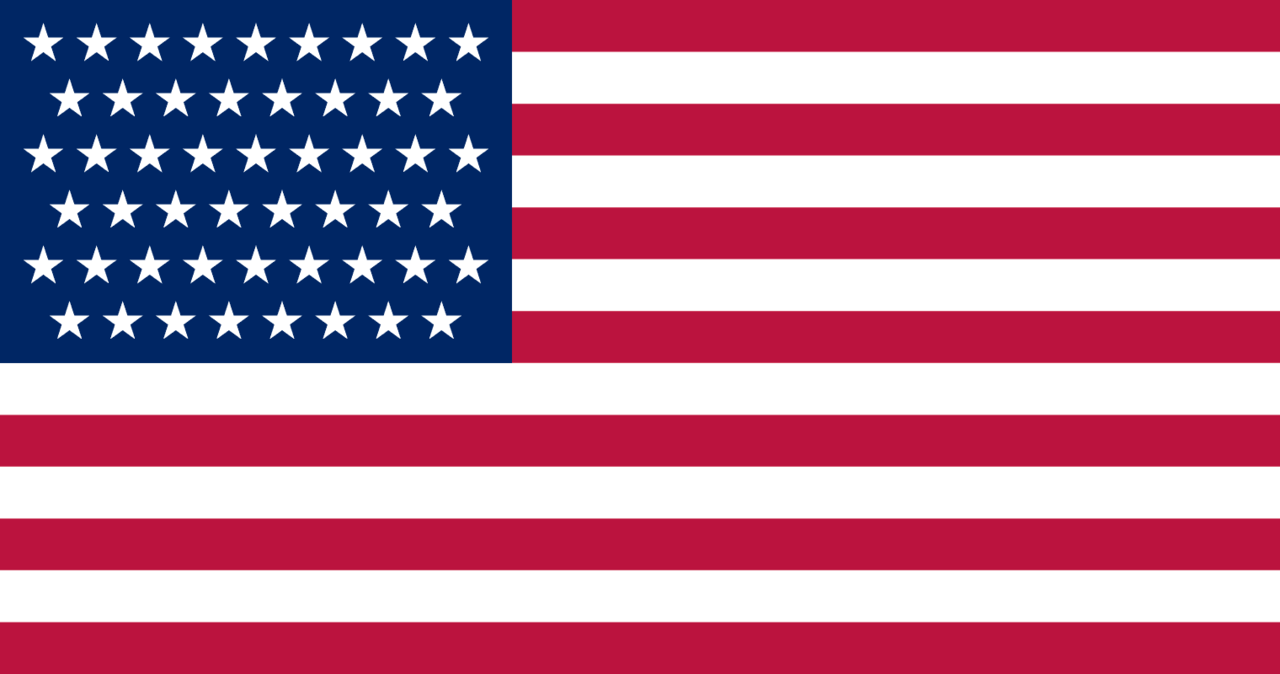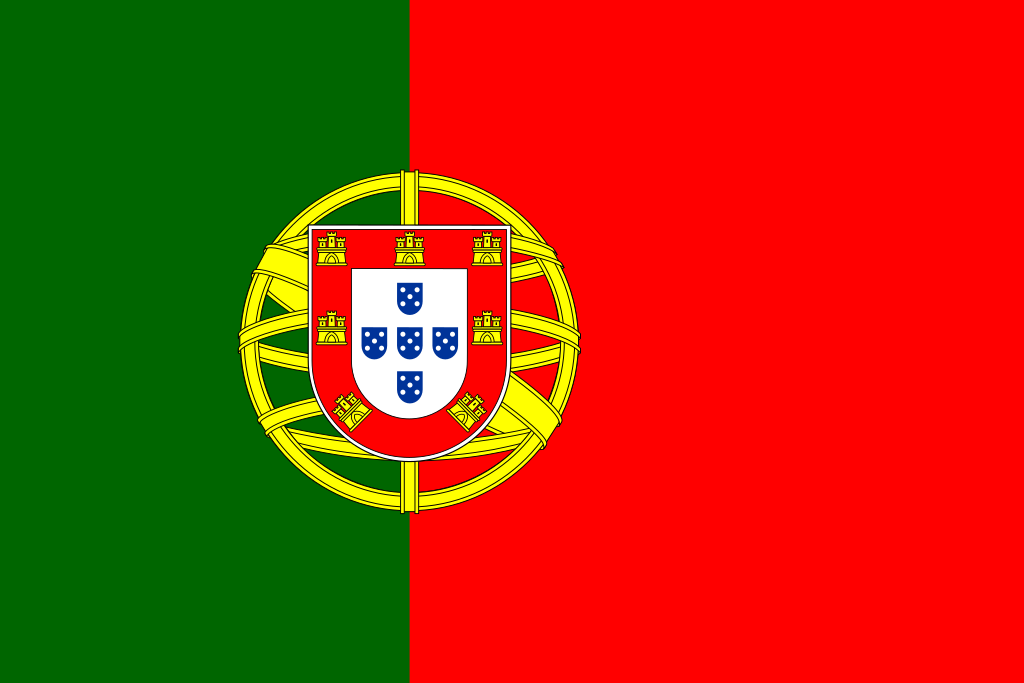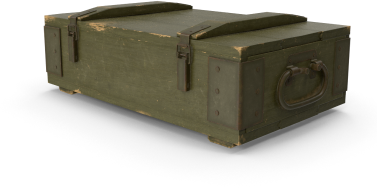A 15-year-old Polish Jew was sent to Auschwitz-Birkenau in August 1944 where he lived a unique experience, survive the gas chamber. His name...
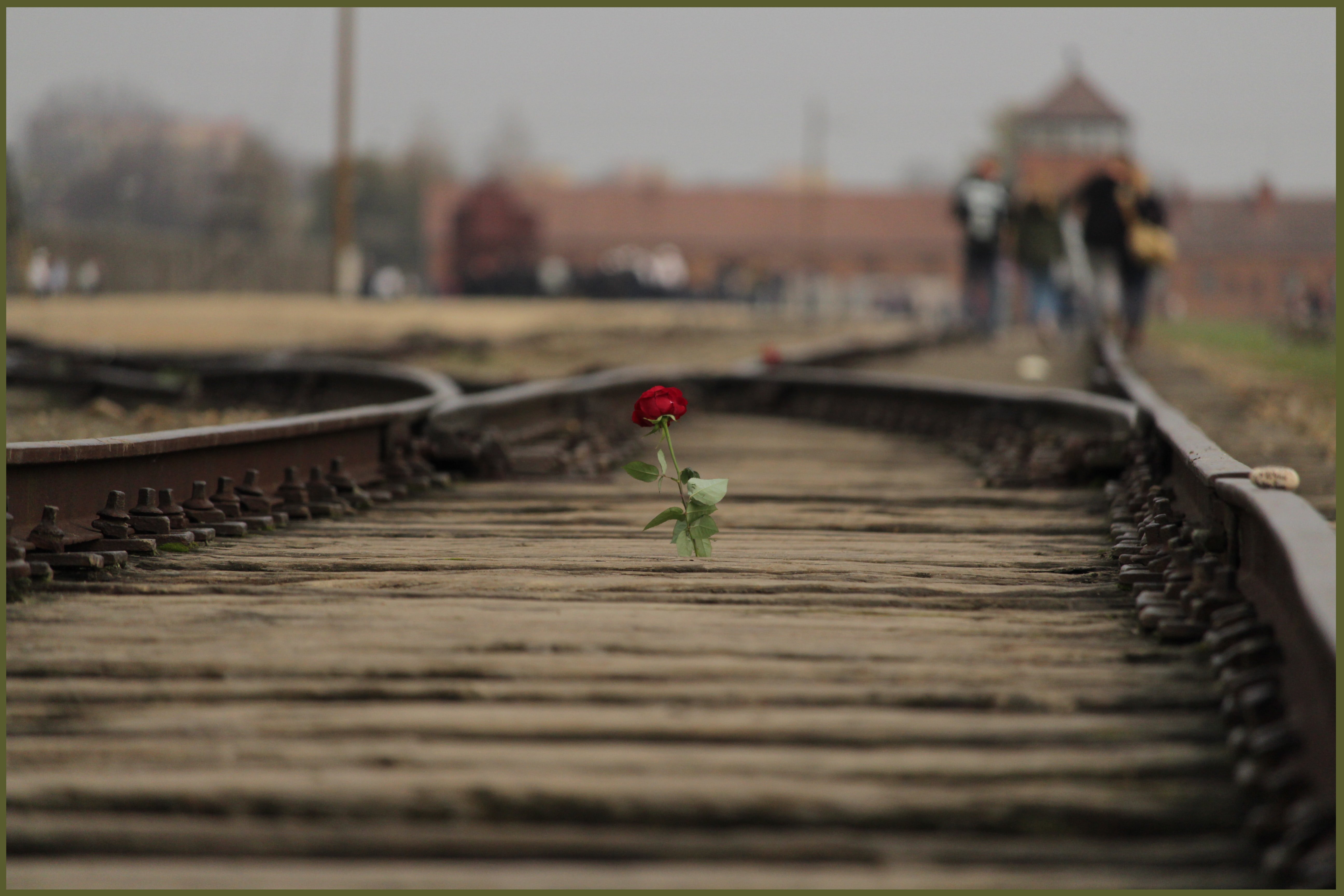
Joseph Wajsblat entered the gas chamber of #4 Crematorium, and he came out of it alive!
For more than 50 years, fearing no one would believe him, he kept this incredible story to himself and his wife. He didn’t even share it with his three daughters.
Surely as you are going to read this story of Normandy American Heroes, you and probably others are going to question the veracity of Joseph late testimony of what he lived thru while at Auschwitz-Birkenau, that he made this all up and that’s perfectly understandable!
So, as to focus on his incredible and unique story and cut short to all false rumors, Rudy owner of Normandy American Heroes believes his story as he is certain that it is true. Before telling you his story, let’s get rid of this doubt you may have, it’s essential and quite easy to do!
The day that the little boy, Joseph known simply as Jo was taken out of the gas chamber of #4 Crematorium just a few seconds from sure death, he was not the only one taken out! The SS guards took out 53 other prisoners.
Well guess what, Joe, years later found two of them, alive! Jack who migrated to Australia and Herman Goldberg who moved to Israel. Both of them told the same story, exactly the same story of how they survived the gas chamber.
Therefore, there is no doubt to be raised as to the authenticity of the story I’m going to tell you now.
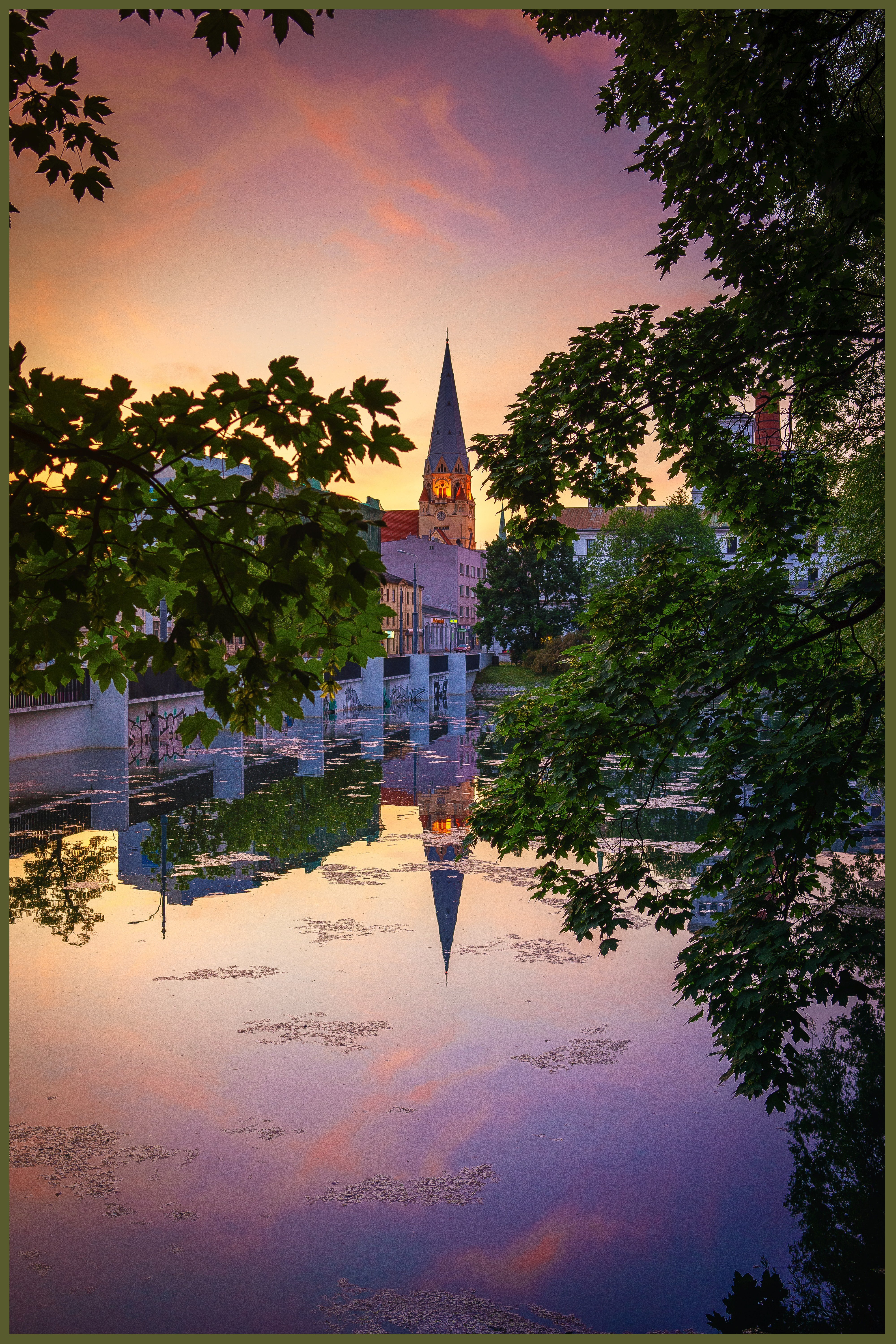
The story of Joseph Wajsblat, evidently, doesn’t start at Auschwitz-Birkenau, no it starts in the city of Lodz, also in Poland. It was, at the time, the largest city where Jews lived in Poland.
The Wajsblat family lived in Lodz, in the Baluty district. His father Iser, a goldsmith has a workshop with 15 employees working for him and was the one who made the two golden menorahs of the great Synagogue of Lodz.
January 31st, 1939 is Jo’s birthday, he is going to be 9 years old. His mother prepared a cake that she gave to the baker to cook. She has this mother gut feeling that this may be the last family celebration for a long time. Why? Like everyone else in Lodz, she knows there is strong probability that Poland will go to war, the medias headlines are without any ambiguity to the outcome.
So, the evening of Joe’s birthday, the only subject on the table was: “What should we do? Should we stay or leave?”
The father of Joe had you could say a categorical opinion of it. “We say, we stay! Leave where? Israel…one day I hope but today it’s simply impossible. The country doesn’t exist, it’s only a dream! I know that some are considering going to the Soviet Union, let them go. I doubt they will be welcomed by the communist. I doubt they will let them live according to the rules of the Torah. So, I say we stay, we stay here and see how things go.”

Adolf Hitler prepares to fly to the Polish front, 1939
September 3rd, 1939, the little Jo was awakened in the night by loud noises in the street. With his dad and little brother Jonathan they looked out of the window and saw the Polish army retreating, the soldiers exhausted, pitiful with a dazed look running away from the Germans advance.
Two days later, September 5th, 1939, the first German soldier entered Lodz, a scout on his side car followed by vehicles, halftracks and tanks. The German army quickly settled in Lodz and started looting all the shops of the town, preferably the Jews first.
At the Wajsblat home, again comes up the question, should we stay, or should we run? To which Jo’s father answers is to say the least disarming! “We stay, the Germans will not dare take my tools & equipment, they are British make!”
Meanwhile, it was soon becoming more and more difficult to find something to eat. The Germans looted everything.
Late November 1939, the Germans burned down four Synagogues, nothing could be spared, not even the Jewish sacred scrolls.
Then in December, the Jews were ordered to wear not one but two Yellow armbands, this goes as well for the children. Traveling of course was forbidden, and a night curfew was put in place. Any Jews not abiding by these new rules will be shot. More so, the Jews were not allowed to walk out in the streets as a group.
A rumor started to spread around December 10th, 1939 that the Germans wanted to conduct a census of the number of Jews in Lodz.
People started to say that the Germans wanted to put them all in one place, in the same district. This was when Jo’s nightmare will start, “hell on earth” in the ghetto that the Nazis were getting ready to build with the forced help of the Jews themselves!
 Litzmannstadt Ghetto, Łódź - Poland
Litzmannstadt Ghetto, Łódź - Poland
The ghetto of Lodz was put in place by the Nazis, February 18th, 1940 and will become the second largest ghetto after Warsaw.
All the Jews were ordered to move out to the old town center in the district of Baluty in what will be known as the Litzmannstadt Ghetto. Jo’ sees his compatriots coming in under the snow, pulling on their sledge whatever they could carry; food, clothes, furniture, mattresses etc.
Jo only 9 at the time was to say the least quite clever and saw a means to make a dime or two. How so? He built some kind of sledge and offered his services to his compatriots to pull for them their belongings.
Once the Jewish population had moved in the Baluty district, the Nazis will order the Jews to build themselves the wooden palisade and barbed wires to close off the ghetto! Once completed, it was strictly forbidden to try to get out. The first one who tried would be shot done by the guards.
Very quickly, there was nothing left to eat inside the ghetto. So, what is Jo going to do about it? Well, with his brother Jonathan, they crawled under the barbed wires to trade food with the Polish. When they were lucky, they managed to bring back some potatoes, a loaf of bread, even some cabbage leaves for the soup. Needless to say, it was extremely dangerous. Jo sometimes did it twice in the same day!
The days, weeks, months went by, then all the sudden the father of Jo became quite ill, his mother too. Jo found himself with the crucial responsibility of being able to feed the whole family at the age of 10! He did, once in a while, leave the ghetto thru the barbed wires, but it had become very dangerous and a lot of kids were shot down by the Nazis. So, he tried to find other means to survive and oh miracle, always managed to bring back a piece of bread, a few potatoes, an egg or two, even some goat’s milk!
But most importantly now he works! This was thanks to Chaim Mordechaj Rumkowski whose idea was to convince the Nazis that the Jews were essential to them. How so? He offered the Nazis that the Jews of the ghetto work for free in exchange for some food. That’s how Jo found, at the age of 11, a job: engraving on metal plates.
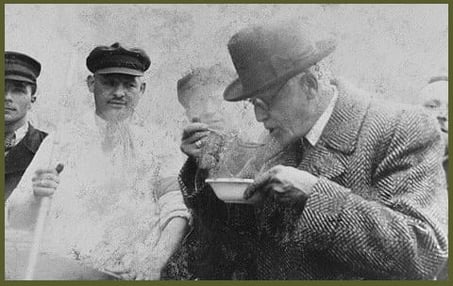
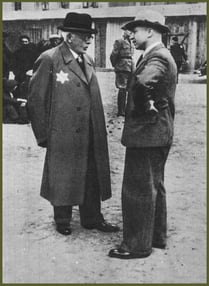
Note: In his memoirs, Yehuda Leib Gerst described Rumkowski as a complex person: "This man had sickly leanings that clashed. Toward his fellow Jews, he was an incomparable tyrant who behaved just like a Führer and cast deathly terror to anyone who dared to oppose his lowly ways. Toward the perpetrators, however, he was as tender as a lamb and there was no limit to his base submission to all their demands, even if their purpose was to wipe us out totally. Either way, he did not properly understand his situation and position and their limits”
For the Nazis, the Litzmannstadt Ghetto became a huge manufacturing plant where Jews made boots, uniforms, buttons, dresses, artillery pieces, etc. They were, at the time, more than 110 workshops in the Ghetto.
“Give me your children”
September 4th, 1942, on German orders Chaim Mordechaj Rumkowski delivered a speech on the square. He pleaded with the Jews of the ghetto to give up their children 10 years of age or younger as well as the elderly over 65 and the sick, to the Nazis. Why? So that everyone else could survive!
Chaim Mordechaj Rumkowski: “A grievous blow has struck the ghetto. They are asking us to give up the best we possess, the children and the elderly. I was unworthy of having a child of my own, so I gave the best years of my life to children. I've lived and breathed with children. I never imagined I would be forced to deliver this sacrifice to the altar with my own hands. In my old age, I must stretch out my hands and beg: Brothers and sisters! Hand them over to me! Fathers and mothers: Give me your children!”
Note: It is said that Chaim Mordechaj Rumkowski was beaten to death by the Sonderkommando at the gate of Auschwitz-Birkenau crematorium #2 who then disposed of his corpse.
After the speech, Jo knew that his younger brother had to hide, as well as his father sick. The Jews who couldn’t work were to be deported to the camps; the situation was of course unclear to what would happen to them once in the camps. The saying was that they were going to be reinstalled!
Jo who naturally worried for his father won’t have to live long the fear of him leaving to a camp. One morning he found him dead in his bed. His father, Iser Wajsblat, was only 38.
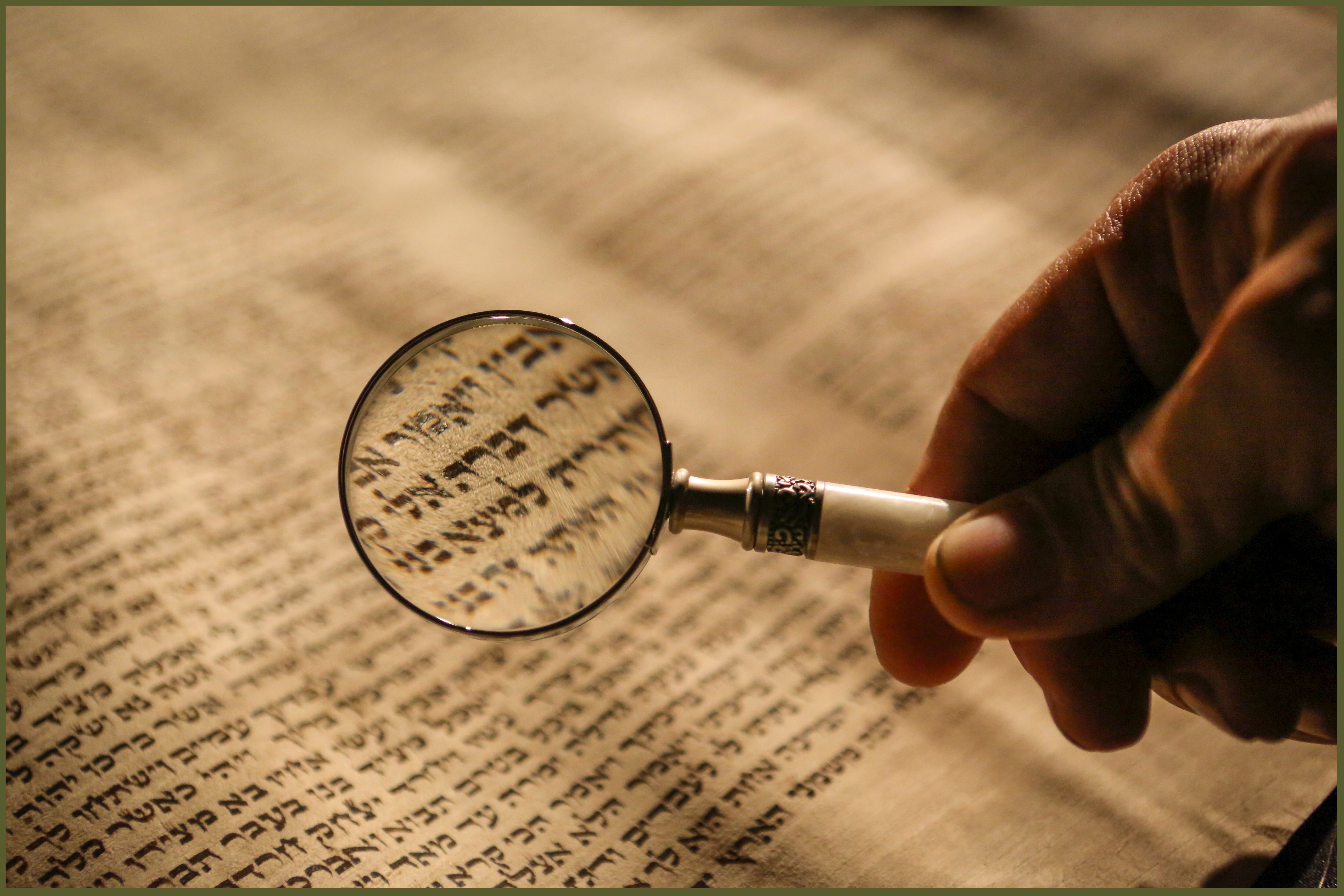
At the cemetery of the Baluty district, it was Jo who recited the Kaddish. At the age of only 11 he found himself the head of the family.
Meanwhile the Nazis became more and more demanding and wanted to reinstall 20,000 Jews of the ghetto in some other camps.
In December 1942, Jo’s uncle, aunt and three kids were the first Wajsblat to leave for the concentration camp. Jo went to the train station to say goodbye, his uncle whispered in his ear: “Jo, I don’t know where we are going, I don’t know if we will ever come back but someone from our family must stay alive to testify. Do whatever you can Jo, whatever you can.”
Then in July 1943, the Nazis demanded that all the kids under 10 be turned in. Jo who had always managed to hide his younger brother knows that at one point it will be impossible to continue to do so. One day the Germans entered his home and asked for his younger brother Henri 9 ½ years old. He told them that he hadn’t seen him for months, but they knew he was lying. They came back again and again and finally found Henri hiding in the cave.
Jo Wajsblat wrote in his memoir: “My Mum bathed Henri just before he was arrested. She dressed him with his most beautiful Shabbat clothes, hugged him dearly, kissed him before saying goodbye. There was a carriage in the courtyard. Henri was taken into the carriage full of other kids, not one of them cried!”
Jo never saw his little brother Henri again. Sadly, he learned later on in time that he had been taken near the Chelmno extermination camp where he was murdered with the other kids in a truck filled with the gas of the exhaust pipe. RIP
His mother, Kalya-Rachel won’t last very long, heartbroken she passed away in August 1943 of what could have been a cancer. Jo found himself in the family apartment all alone with his aunt Esther, his brother Jonathan and sister Haya-Sarah. Three kids doomed to be killed shortly by the Nazis in the camp.
Summer 1943, every morning you could see more and more corpses in the streets of the ghetto, most of them looked like skeletons due to the starvation. People were dying of hunger; they worked as much as before, but the food shortage increased every day.
On the morning of August 11th, 1944 Jo made it back to his home with a few carrots, some cabbage leaves… he found the apartment empty! His aunt, little brother and sister had been arrested. He was again all alone. At the age of 14, yes, he was all alone. Alone in a ghetto which was being emptied every day both of the living and dead. Let’s not forget that in 1940, at least 230,000 Jews were imprisoned in the ghetto!
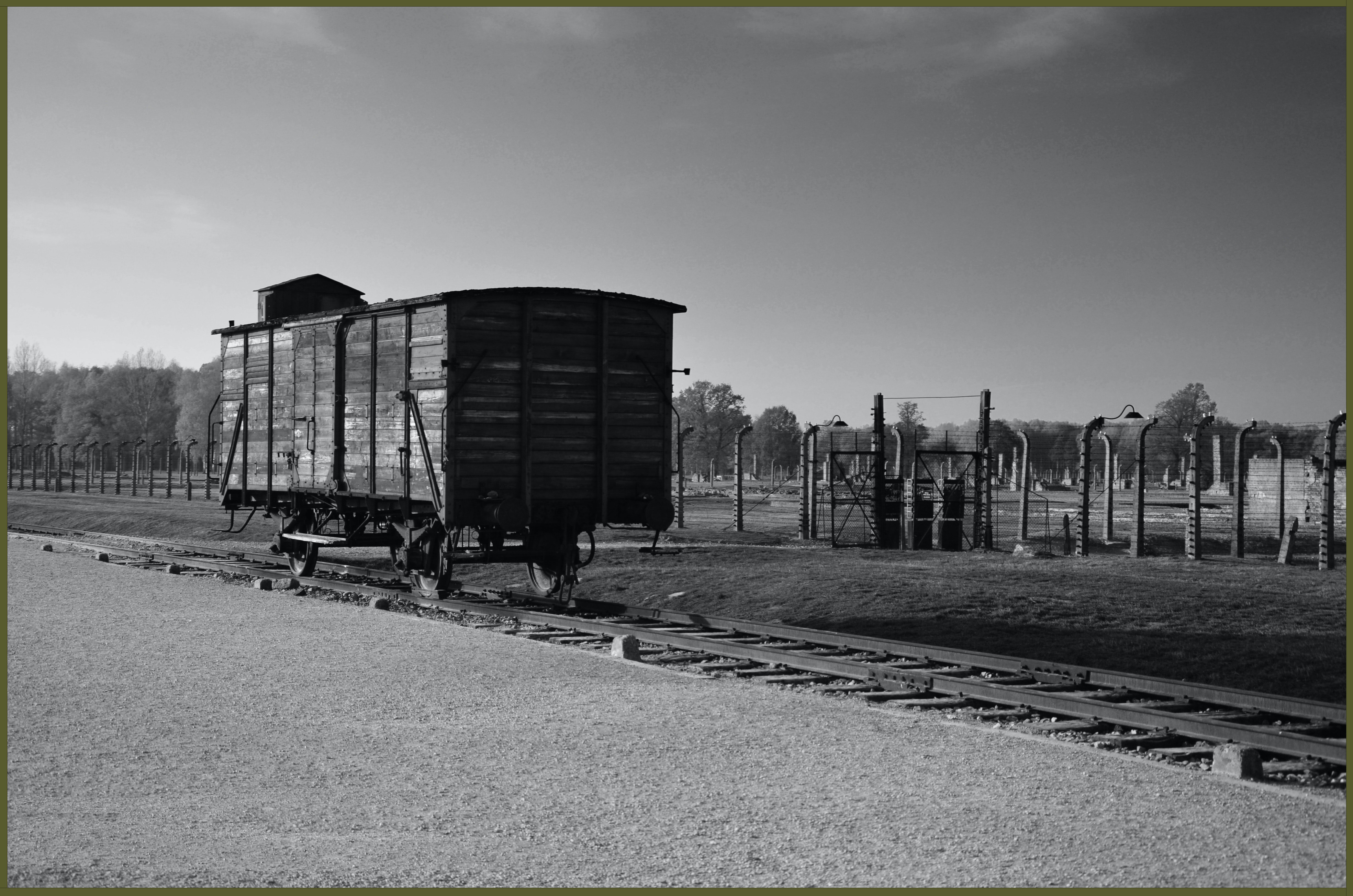
At one point, Jo decided to head off to the meeting place and climbed into the train heading off to the camp. Where? He had no idea.
When the doors of the train finally opened, it was around noon. Outside the sky was blue, the environment hectic. “Raus, raus” say the guards to the prisoners. Jo jumps out of the wagon; he wanted to pick up his bag which had pictures of his family, but the guard told him he will have time later on to pick it up. “Raus. Lass alles drinnen, Sie warden kommen und sie später bekommen” says the guard (Out. Leave everything inside, you will pick them up later).
Skinny wide-eyed sickened men dressed up in striped pyjamas come over giving out discreet messages. “You are at Birkenau, near Auschwitz”. To Jo: “How old are you?” “I’m 15”. “Say you are 17”.
Miradors, dogs, at that precise moment Jo thinks it’s a regrouping camp for the workers! He has no idea what awaits him there. All the sudden he found himself in front of an SS Officer with a riding whip in his hand. He later learned that it was Joseph Mengele, the chief doctor of the extermination camp.
_1b-May-12-2021-08-40-45-88-PM.jpg?width=897&name=Selection_on_the_ramp_at_Auschwitz-Birkenau%2c_1944_(Auschwitz_Album)_1b-May-12-2021-08-40-45-88-PM.jpg)
People passed in front of him and Mengele with his whip designated each prisoner: “You left, you right, you right, you left…”. Left meaning the gas chamber, right the right to survive a bit longer. When Jo passed in front of him, Mengele showed the right, it will be the camp for Jo.
Jo and Mengele will soon meet again, later…a bit later.
Jo moved toward the camp, he saw the huge chimneys, breathed in and smelled the stench of the corpse burning without truly understanding, without realizing. He saw the barbed wires with prisoners behind it frighteningly skinny and amid the population managed to find an old friend from the Litzmannstadt Ghetto.
“Moche, I’m so happy to see you” says Jo when all the sudden a prisoner who had just arrived asked them: “Do you know where I can find my wife and son in the camp? Her name is Fela, my son Yankel. They arrived a few weeks ago.”
It was Moche who answered the prisoner abruptly with his eyes looking up toward the chimney: “Don’t think of it anymore, they are already up there”.
Jo found himself in the Block 4 of the E Camp known as the Gipsy quarters, transferred the next day to Block 12 where he received the number 67364 tattooed on his forearm.
His first challenge was to eat! To survive, you had to eat no matter what! You had to eat more than the daily ration consisting of something called coffee in the morning, a soup with a few pieces of vegetables floating around at lunch time, a small piece of bread and if you were lucky some kind of grease to top it in the evening.
Like in the ghetto, Jo fought daily to have a double ration to survive.
Then there was the roll call which could last hours under the wind, rain or snow, in the cold where prisoners were constantly humiliated.
One day he was ordered to shout out: “We the Jews wanted the war”. The guard: “Lauter” (louder) “WE THE JEWS WANTED THE WAR”. The guard: “Well you have it. Are you happy now!”
But the biggest challenge for Jo, as for all the other prisoners, was not to be “selected”. To get away with being selected for the gas chamber.
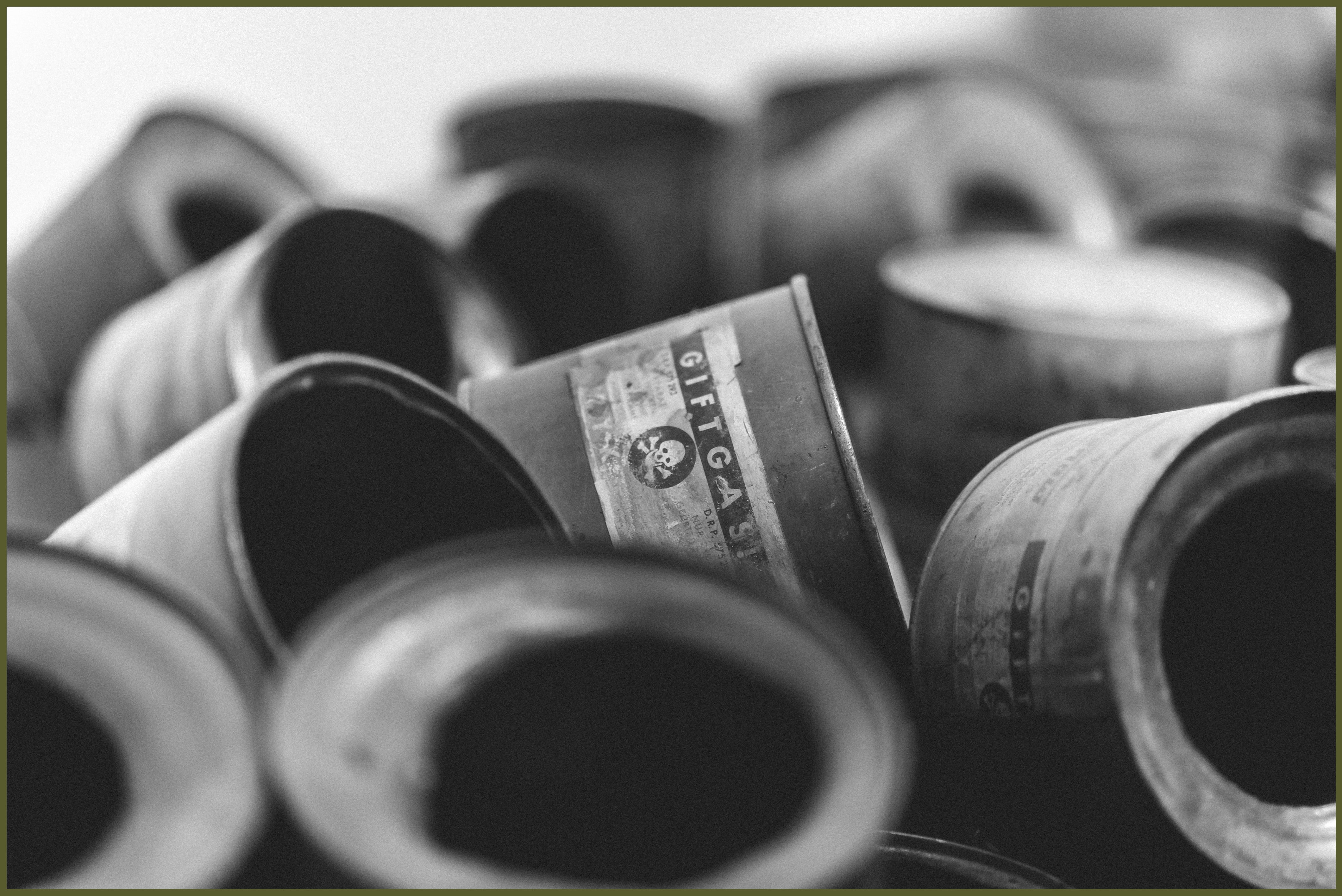
Every morning the SS would enter the block and say: “You, you, you there, and you, you…”. Not to be selected was another day of survival. To do so, you had to be able to make yourself small, discreet, as if you were invisible.
One day he saw his best friend join his brother Velvo heading off to the gas chamber. “He was like my brother. I tried to talk him out of it. But he didn't want to let his brother die on his own when their father had already died in the ghetto in 1942. His name was Haïm. It means “life”. He pushed me away by force and left. It's like half of me left with him that day. He, Velvo, I can't forget him, he’s with me forever” will testify Jo after the war.
About two weeks after his arrival in the camp, Jo found himself with the others at the roll call square of E Camp. The SS had setup a wooden board between two poles. Anyone who passed under, without bending down, was to be sent directly to the crematorium #4.
Jo knew he was way too small. Even if he tried to walk on the tip of his toes, there was no way he could get away with it!
A Kapo, all of a sudden, told him: “Go and hide yourself. Go and hide there.” He showed him a ditch, some kind of stinking sewage network where he hid until nightfall.
In the following weeks, he was selected numerous times by the SS, but Jo always managed to run away and hide. One time in the horrendous latrines, another time thru a small window of a barrack, hiding on top of the roof…!
“The smell of burning flesh and hair was constantly in the air. Incinerator ovens were no longer sufficient, large pits had been dug on the edge of the forest where the corpses were piled up before sprinkling them with gasoline, as in Chelmno or Treblinka ": Jo Wajsblat during an interview about him, April 2016
Then a day in October, Jo can’t recall the precise date, the prisoners of E Camp were ordered to move out to the roll call square. There the SS guards with the dogs surrounded them.
The SS Officer, who looked like he was totally wasted, drunk, ordered the prisoners to align themselves in rows of five per row. This time Jo knew he wasn’t going to be able to run for it. Suddenly, a kid near Jo tried to make a run for it but was shot almost immediately by the guards.
The prisoners once aligned were ordered to get undressed totally. “Schnell. Make sure you remember precisely where you left your clothes. You are all going to take a shower.”
The prisoners surely were thinking to themselves: “Why are they lying?”
Then the SS guards with the dogs barking, and the help of the Kapos pushed the naked prisoners toward the small tiny door of the gas chamber of #4 crematorium.

It goes without saying that it was not too difficult for the SS Guards and Kapos to push the prisoners, broken, weakened, starving, sick into the gas chamber. The use of the whips and beatings with batons motivated the rebellious ones.
Jo found himself on top of others in a small room with lights on the ceiling, still able to move more or less.
Some children started to cry; some recited the Mourner’s Kaddish. Jo who was one of the first to be at the roll call was one of the last one to enter the gas chamber.
Jo didn’t hear the airtight door closing behind him. All the sudden the lights were turned off. Jo was under the impression that he was suffocating. Since he had arrived at Birkenau, others kept telling him: “You must breathe in deeply the fumes so as to die quickly” but like everyone else in the gas chamber, he held his breath!
He saw himself watching his mother in the ghetto, skinny to the bones, sick saying before dying: “I dream of the day where I will be able to lay the table for my children and have them eat as much as they want!” He visualized his little brother in the carriage, his father dying, his uncle telling him: “Try to survive”
How long did this last? Impossible to say! All of a sudden, the door opened, an SS officer screamed from the outside: “Raus, raus…schnell, raus”.
A few seconds later, Jo found himself with 50 or so other prisoners, who were the closest to the door, out in the courtyard. The door then was shut again and the ones inside murdered.
Jo and the others around him had just escaped the gas chamber!
“Get dress…schnell”.
Why was Jo and the others lives spared?
Jo will find out a few days later. The SS Officer who had screamed outside “Raus, raus…schnell, raus”, was Joseph Mengele.

The selection had been done in his back, without his knowledge. That was not acceptable as he was to supervise all the selections! This was the reason why he had had 50 prisoners taken out of the gas chamber to demonstrate his unequivocal authority to the other SS Officers.
It was said back then that he had slapped the SS Officer who had not respected his authority.
For the vast majority of the ones who had survived the gas chamber, thanks to Joseph Mengele strong evil ego, most of them were executed shortly after… but not Jo!
Why? Jo, a few days later luckily managed to be transferred not far from Hamburg, Germany to work first at the Brunswick camp on trucks. He was then sent to the concentration camp of Wöbbelin.
Esther his aunt, his brother Jonathan and sister Haya-Sarah will be on one of the last trains heading off to Auschwitz from the Litzmannstadt Ghetto. Upon their arrival they were immediately executed in the gas chamber. RIP
Jo survived there until the liberation of the Wöbbelin concentration camp on May 2nd, 1945 by the 8th Infantry Division and the 82nd Airborne Division. It is to be noted that among the horrors of the camp, due to starvation, prisoners resorted to cannibalism.
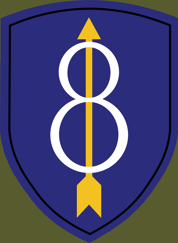
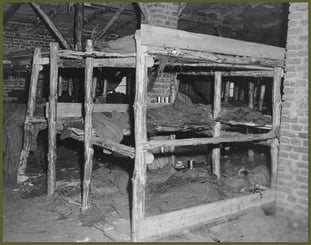
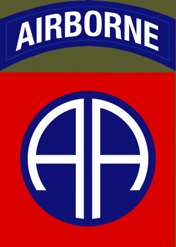
Wöbbelin concentration camp sleeping quarters
At the Wöbbelin concentration camp, some US Soldiers took fond of this 15-year boy asking him: “What are you going to do? Are you going to go back to Poland?” “No” “Where do you want to go?” “I don’t know” “You want to come to the States with us?” “Oh yes” but pretty much at the same time Jo was going to meet two French sisters, Georgette and Madeleine. The two sisters also became fond of him: “Come with us, come, we are going back to France”.
And this is how Jo found himself going to Paris in May 1945 by train. He went to the Hotel Lutétia which had become a transit center for the survivors of the concentration camps between April and August 1945. At least 18,000 survivors transited there!
You could say, what a surprising choice! Normandy American Heroes totally agrees with you. Why did the French government decide to use the Hotel Lutétia which had had been occupied by the Abwehr (counterespionage) when the Nazis had taken control of Paris?

Odette Rosenstock, a Jewish doctor and member of the French Resistance while at the Hotel Lutétia – some of her memories of her transit at the Hotel Lutétia
“In front of the train station, buses were waiting for us, the same ones that had taken us from Drancy to Bobigny to leave for Birkenau! "
“The vast entrance to the hotel is obstructed by a mass of women brandishing photos, shouting names ... You had to rush into the crowd to be able to enter.”
"Inside the hotel, it's hectic with the trampling of the crowd - but we are directed to rooms - dormitories where we can rest ... And here we find comrades of the camp or of the trip: nothing could be more comforting ... "
"Those who still have a home, or at least a place to go, can then leave, after they have been served a meal. We provide them with a paper allowing them to take the metro or the bus for free and, if necessary, they are ac




